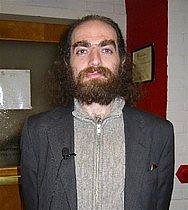 Image by bedheaded via Flickr
Image by bedheaded via Flickr
Published: March 20, 2010
Seven years ago, a reclusive Russian mathematician, Grigori Perelman, startled the scientific world by claiming to solve one of the most famous and intractable problems in mathematics, called the Poincaré conjecture, and then disappearing back into St. Petersburg.
Now Dr. Perelman, who did not show up to receive a prestigious Fields Medal from the International Mathematical Union in Madrid in 2006, has been named the winner of the million-dollar prize for solving the problem by the Clay Mathematics Institute in Cambridge, Mass.
The prize was announced Thursday by James Carlson, president of the institute. It is the first of the million-dollar Millennium prizes to be awarded. They were established in 2000 by the institute for the solution of seven longstanding problems.
Will Dr. Perelman accept? “He will let me know in due time,” Dr. Carlson wrote in an e-mail message, acknowledging that they had been in touch. He declined to provide more details.
Poincaré’s conjecture, elucidated in 1904, is fundamental to topology. It essentially says that any three-dimension space without holes in it is a sphere. Many distinguished mathematicians had grappled with the problem.
Dr. Perelman, then a researcher at the Steklov Institute of Mathematics at St. Petersburg, posted three papers on the Internet sketching out a solution in 2003, and they attracted fevered interest. After a whirlwind tour of the United States, Dr. Perelman went back to Russia and gradually stopped answering e-mail messages and even resigned his post at Steklov.
Several teams of mathematicians, using Dr. Perelman’s papers as a guide, completed a full proof of the conjecture in manuscripts hundreds of pages long, showing that Dr. Perelman was right.
The Clay Institute plans to hold a conference to celebrate the solution of the Poincaré conjecture in Paris on June 8 and 9.
A version of this article appeared in print on March 21, 2010, on page A15 of the New York edition.

![Reblog this post [with Zemanta]](http://img.zemanta.com/reblog_e.png?x-id=36583cea-e2bb-4c21-bdc3-c405fd9388f6)
No comments:
Post a Comment